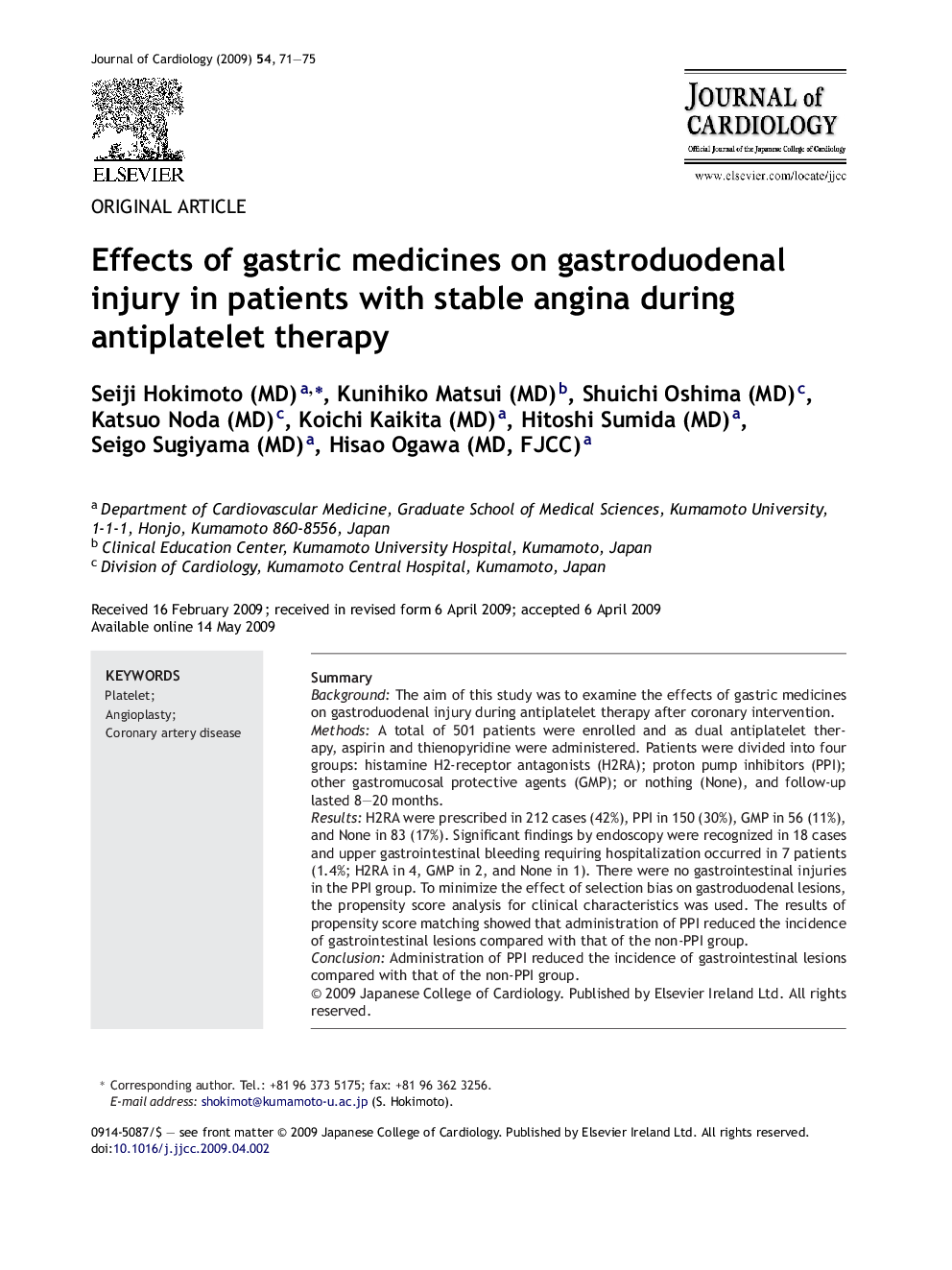| Article ID | Journal | Published Year | Pages | File Type |
|---|---|---|---|---|
| 2963750 | Journal of Cardiology | 2009 | 5 Pages |
SummaryBackgroundThe aim of this study was to examine the effects of gastric medicines on gastroduodenal injury during antiplatelet therapy after coronary intervention.MethodsA total of 501 patients were enrolled and as dual antiplatelet therapy, aspirin and thienopyridine were administered. Patients were divided into four groups: histamine H2-receptor antagonists (H2RA); proton pump inhibitors (PPI); other gastromucosal protective agents (GMP); or nothing (None), and follow-up lasted 8–20 months.ResultsH2RA were prescribed in 212 cases (42%), PPI in 150 (30%), GMP in 56 (11%), and None in 83 (17%). Significant findings by endoscopy were recognized in 18 cases and upper gastrointestinal bleeding requiring hospitalization occurred in 7 patients (1.4%; H2RA in 4, GMP in 2, and None in 1). There were no gastrointestinal injuries in the PPI group. To minimize the effect of selection bias on gastroduodenal lesions, the propensity score analysis for clinical characteristics was used. The results of propensity score matching showed that administration of PPI reduced the incidence of gastrointestinal lesions compared with that of the non-PPI group.ConclusionAdministration of PPI reduced the incidence of gastrointestinal lesions compared with that of the non-PPI group.
